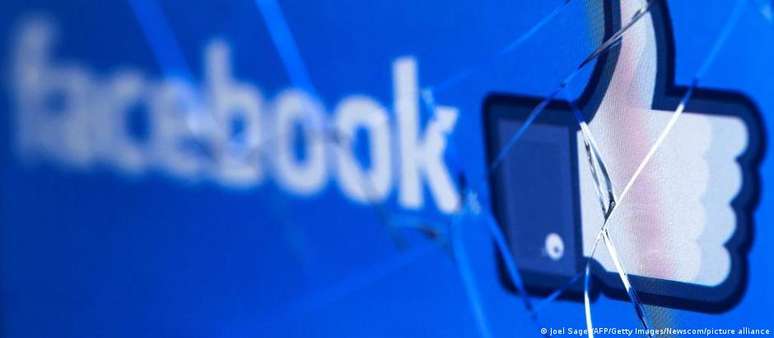The largest social platform in the world was born as hope. Two decades later, it is accused of generating social polarization, harming young people and abusing private data. Facebook, the largest social network in the world, turns 20 this Sunday (04/02). More than 3 billion people are active on their pages at least once a month, which is more than one in three inhabitants of the planet.
It’s a success story. But the celebratory atmosphere was overshadowed for the platform’s founder, Mark Zuckerberg. Just days before the anniversary, Zuckerberg faced strong criticism at a US Senate hearing on inadequate protections for children and young people on major internet platforms.
“You have blood on your hands,” shouted Republican Senator Lindsey Graham. “You have a product that kills people.”
“Your design decisions, your failure to adequately invest in trust and security, your constant pursuit of platform loyalty and profit over basic security put our children and grandchildren at risk,” Democrat Dick charged Durbin, US Senate Majority Leader.
Co-responsibility for the mental health crisis
The dangers of social media have been a topic of widespread discussion. In the United States, platforms are considered partially responsible for the youth mental health crisis. In May 2023, Vivek Murthy, a doctor and head of the US Public Health Service, published a special recommendation for social media. In it, Murthy warns that there is “ample evidence that it can seriously impair the mental health and well-being of children and adolescents.”
Gerd Gigerenzer, a German psychologist and researcher at the Max Planck Institute in Berlin, says the problem is not just limited to the fact that more and more people have difficulty concentrating. “Some studies show that insecurity, lack of self-esteem, depression and even suicidal thoughts have increased,” says the expert in an interview with DW.
In the United States, for example, these signs could include the rising suicide rate among people aged 10 to 25, which grew by 60% in the decade between 2011 and 2021.
Hope at the beginning
Facebook started innocuously enough at the dawn of the digital revolution, when the Internet promised transparency and participation. While traditional media worked according to the pattern of “one communicates with many”, this new communication of “all with all” seemed to bring more freedom, participation and democracy. Facebook was an exciting social network where you could quickly find like-minded people, share your vacation photos, and keep up to date with what your friends were doing.
“At the beginning, Facebook had a very altruistic self-image: people thought that connecting people would make the world a better place,” says Martin Emmer, a Berlin-based media scientist.
It’s a network with far-reaching consequences. An example was the uprisings during the Arab Spring of 2011, initially characterized by high hopes and sometimes called “Facebook revolutions” due to the network’s role in organizing demonstrations and resistance.
Facebook, especially in conjunction with the rapid development of smartphones, has offered the satisfaction of an ancient human need at the highest technological level.
“Human beings are social beings,” Emmer explains. “And these platforms have achieved something that no other media has managed to do before: they allow us to connect with other people on many different levels and to participate in each other’s lives, creating networks based on different types of friends.”
Between empowerment and deprivation of rights
However, providing network infrastructure comes at a price, and users pay double: with their data and with their attention.
Attention is a rare commodity. Advertisers are happy to spend money on this. Especially when messages can be specifically targeted to potential customers thanks to profiles full of precise information about their owners. For this reason the platform operators collect as much data as possible from their users and each of them provides another data point. And with detailed knowledge of users’ interests, likes and dislikes, their timelines are flooded with content that keeps them on the platform for as long as possible.
For a long time, platform operators did not take into account the impact of this content on people and society. The growing polarization of society, the ever-increasing brutalization of political discussions, the spread of the wildest conspiracy theories – all this is associated with Facebook and its partners.
Given their communicative power, social networks can also be exploited for political purposes. In 2016, allegations were made that Russia had used Facebook to influence the outcome of the US presidential election. Two years later, Facebook was embroiled in the Cambridge Analytica scandal: largely without the knowledge of its users, the company analyzed data from around 50 million Facebook profiles, with the aim of influencing voter behavior with highly rated messages. targeted and personalized. Stop the Steal groups on Facebook also played a role in the 2020 US election and in the legend spread by Donald Trump that the election was rigged.
Election year 2024
In 2024 we will have a super election year. Citizens of countries where more than half of the world’s population lives will go to the polls: in India and Indonesia, in Pakistan and Russia, in the European Union (EU) and in the United States.
American computer scientist and technology critic Jaron Lanier is worried: “There will be more deepfakes through artificial intelligence and other new applications of technology to manipulate people. And I think many people will not be prepared for this,” says the author of book Ten topics to delete your social networks immediately, from 2018.
Lanier sees it as a positive thing that many people are slowly realizing how they are being manipulated. However he warns: “I don’t know if there are enough of them to make a difference.”
Philipp Lorenz-Spreen, a social media researcher at the Max Planck Institute in Berlin, agrees that companies have been dragged along by data companies for too long. “We’ve allowed this Web 2.0, this Internet where everyone can share their content, to develop in an almost purely commercial direction for 20 years; we’ve allowed this attention economy to proliferate.”
Politicians are reacting
Now the politicians have woken up. And they are trying to make up for lost time in the race with the tech giants.
In 2022, the EU passed the Digital Services Act (DSA). One of the goals is to remove illegal content, such as hate speech, more quickly and better protect users’ fundamental rights, including freedom of expression.
Thanks to the DSA, researchers should finally also have access to the data of the Internet giants. Lorenz-Spreen is very satisfied: “Something is happening in the direction of transparency, so we can also open this black box a little and see how this machine works.”
In any case, it is highly profitable. Meta, the parent company of Facebook, which also owns Instagram and WhatsApp, made so much money from advertising in the last quarter of 2023 that it decided to pay its first dividend to shareholders on the 20th anniversary of its founding. At least for them there may be reasons to celebrate.
Source: Terra
Rose James is a Gossipify movie and series reviewer known for her in-depth analysis and unique perspective on the latest releases. With a background in film studies, she provides engaging and informative reviews, and keeps readers up to date with industry trends and emerging talents.







